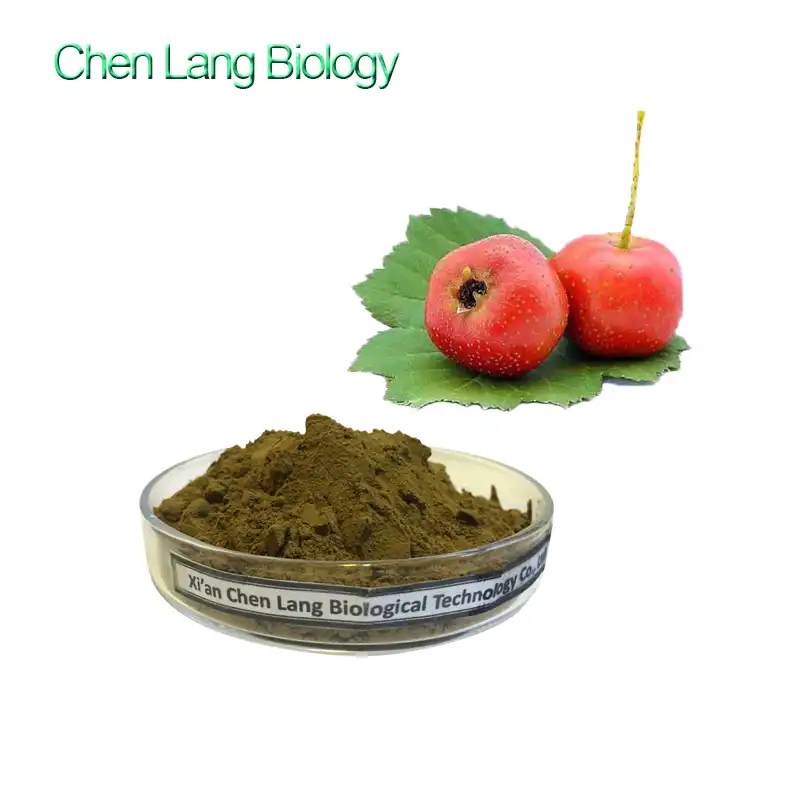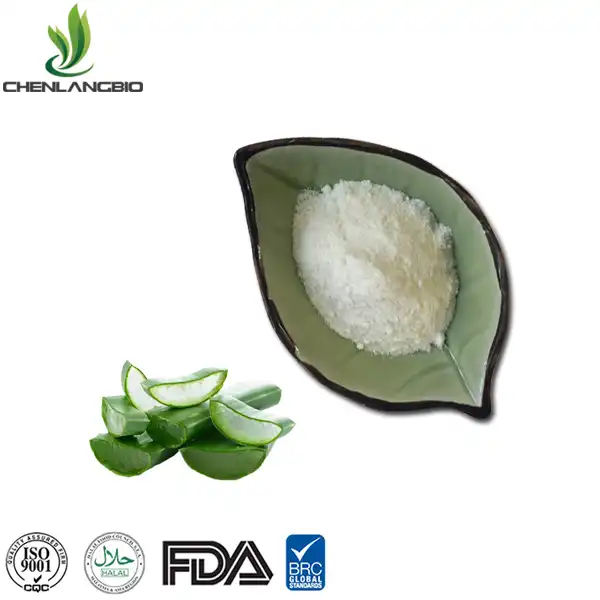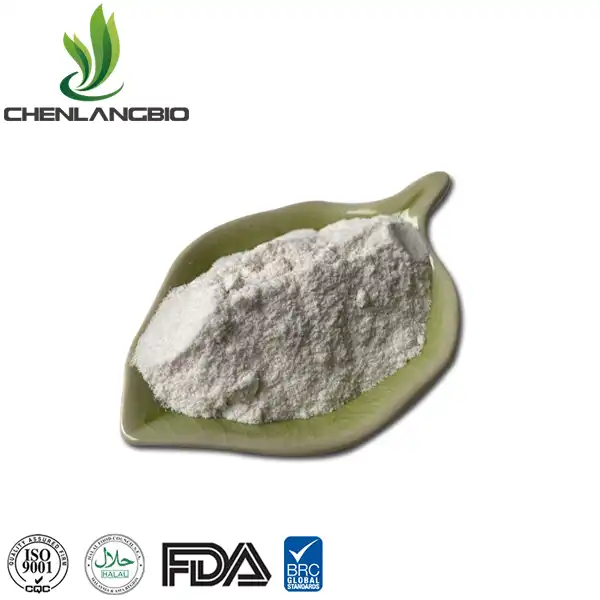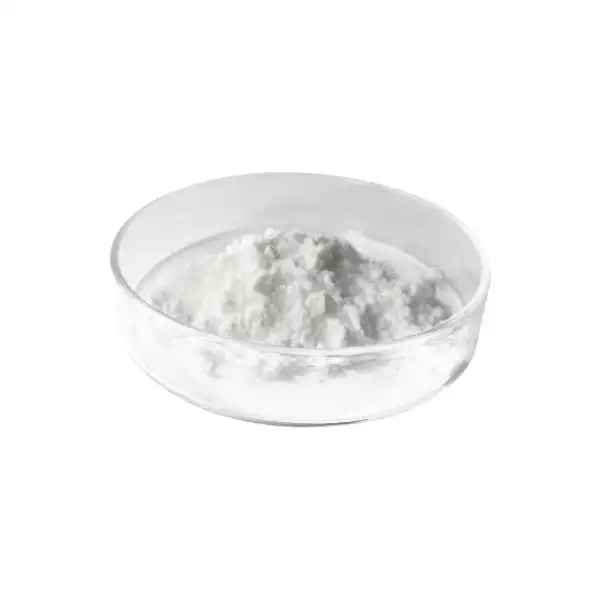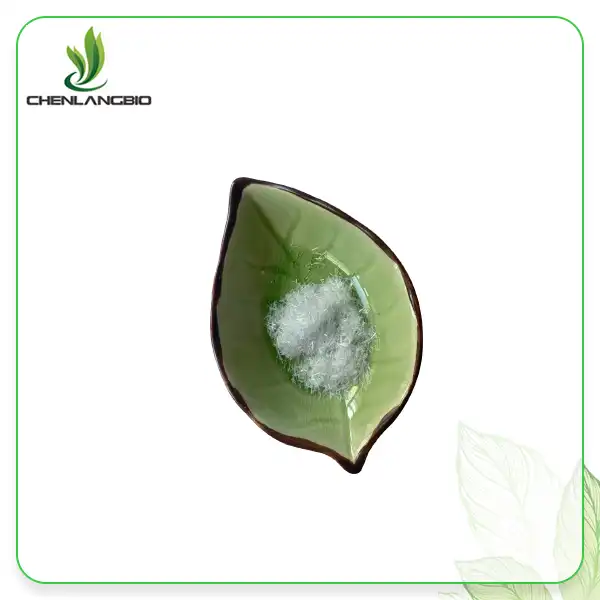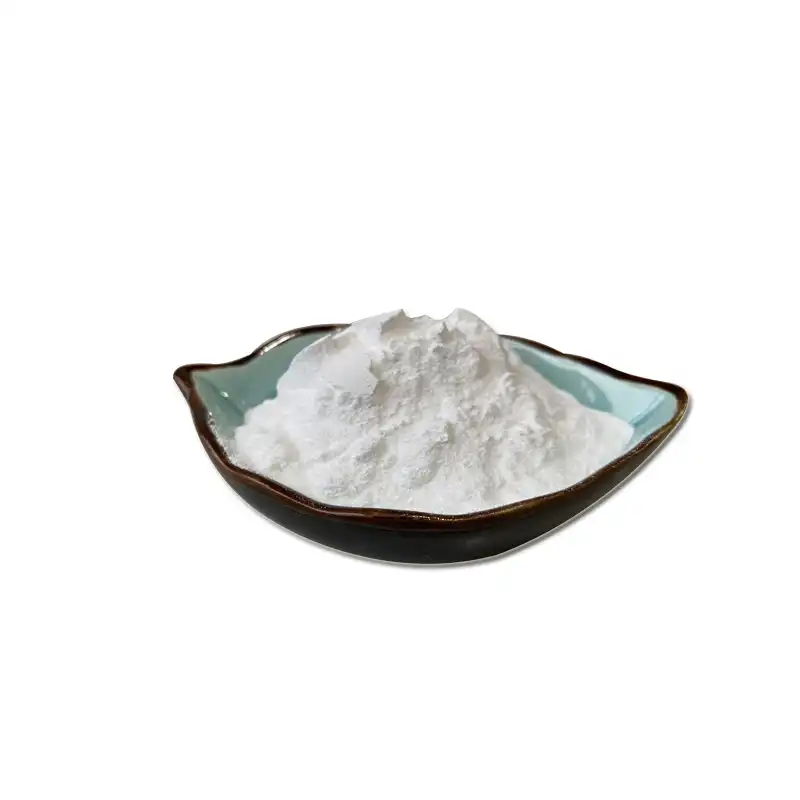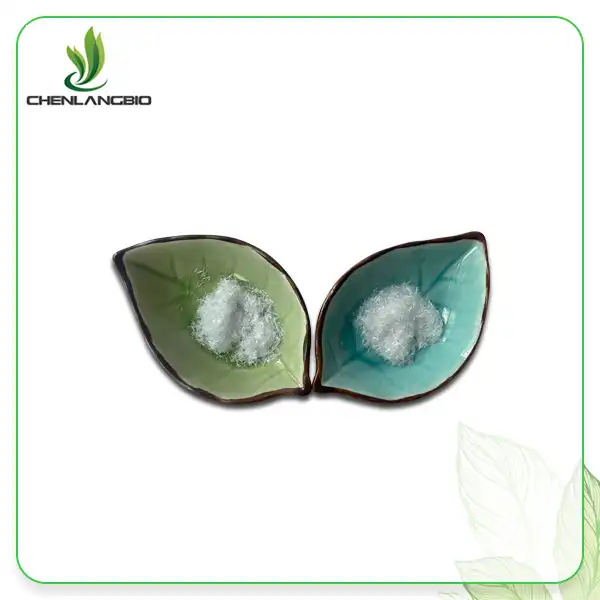Is lysozyme Safe
2024-06-25 10:38:50
Lysozyme, a naturally occurring enzyme found in various organisms, plays a crucial role in the body's defense mechanism against bacterial infections. Derived primarily from hen egg whites, lysozyme is utilized in multiple applications ranging from food preservation to pharmaceuticals. Given its widespread use, questions about its safety are paramount.

Is Lysozyme Safe for Human Consumption
Lysozyme has been widely studied and is generally recognized as safe (GRAS) by the U.S. Food and Drug Administration (FDA). It is commonly used as a food preservative due to its ability to inhibit the growth of harmful bacteria, thereby extending the shelf life of perishable products such as cheese, meats, and wines. Lysozyme is effective against gram-positive bacteria, making it a valuable tool in preventing foodborne illnesses caused by bacteria like Listeria and Clostridium.
Despite its proven benefits, some concerns have been raised regarding potential allergenicity, especially for individuals allergic to eggs. The enzyme's extraction from egg whites means it may contain trace amounts of egg proteins, which can trigger allergic reactions in sensitive individuals. However, the levels are typically very low and carefully monitored in commercial products to ensure safety.
The European Food Safety Authority (EFSA) has also evaluated the safety of lysozyme and concluded that it does not pose any significant health risks to consumers when used as a food additive. Studies have shown that lysozyme does not have toxic or carcinogenic effects and is metabolized efficiently by the body.
Moreover, lysozyme's antimicrobial properties have been leveraged in the development of functional foods aimed at enhancing human health. For instance, lysozyme-enriched products are being studied for their potential to reduce gastrointestinal infections and improve gut health.
Can Lysozyme Be Used in Infant Formula
Lysozyme is also explored for use in infant formulas to enhance their antibacterial properties. Breast milk naturally contains lysozyme, which helps protect infants against infections. Adding lysozyme to formula can mimic this protective effect, providing additional health benefits for bottle-fed infants.
Research indicates that lysozyme can safely be added to infant formulas, and its use is approved in several countries. However, it is crucial to ensure that the enzyme's inclusion does not lead to allergic reactions, especially in infants with a predisposition to egg allergies. Studies have shown that lysozyme is well-tolerated by most infants, although monitoring and rigorous safety assessments are recommended before widespread use.
One notable study published in the journal Pediatrics evaluated the safety and efficacy of lysozyme in infant formulas. The study concluded that lysozyme supplementation significantly reduced the incidence of gastrointestinal infections in infants without causing adverse allergic reactions. This finding supports the potential benefits of lysozyme in enhancing the protective effects of infant formulas.
Additionally, the World Health Organization (WHO) has recognized the potential benefits of bioactive compounds like lysozyme in infant nutrition. They suggest that incorporating such components can improve the overall health outcomes of infants, particularly in areas with high rates of infection and malnutrition.
What Are the Side Effects of Lysozyme
While lysozyme is generally safe, there are a few potential side effects to be aware of, primarily related to its allergenic potential. In rare cases, individuals with severe egg allergies might experience allergic reactions upon consuming products containing lysozyme. These reactions can range from mild symptoms such as hives to severe anaphylaxis.
In terms of pharmacological use, lysozyme's safety profile is well-documented. It is used in various therapeutic applications, including wound healing and as an anti-inflammatory agent. The enzyme's antibacterial properties make it a valuable component in treating infections without significant adverse effects. Nonetheless, like any bioactive compound, it is essential to use lysozyme within recommended doses to avoid potential side effects.
A comprehensive review published in the Journal of Food Science analyzed multiple clinical trials and safety assessments of lysozyme. The review found that adverse reactions were rare and generally mild, further supporting the enzyme's safety profile. However, the review also emphasized the importance of continuous monitoring and research to ensure long-term safety, particularly with increasing use in diverse applications.
Furthermore, lysozyme has been evaluated for its safety in pharmaceutical formulations. The FDA has approved its use in various over-the-counter and prescription medications, underscoring its established safety record. These approvals are based on extensive clinical testing and post-marketing surveillance data.
Is Lysozyme Effective Against Viruses

Emerging research suggests that lysozyme may possess antiviral properties in addition to its well-known antibacterial effects. Studies indicate that lysozyme can disrupt viral particles and inhibit their replication, offering a potential therapeutic approach against viral infections. This antiviral activity is thought to be due to lysozyme's ability to interact with viral nucleic acids and proteins, impairing their function.
A study published in Virology Journal explored lysozyme's effects on various viruses, including influenza and herpes simplex virus. The findings demonstrated that lysozyme could effectively reduce viral load and inhibit replication in cell cultures. These promising results highlight the enzyme's potential as a complementary treatment for viral infections.
However, while the in vitro and preliminary animal studies are promising, more clinical trials are needed to fully understand lysozyme's efficacy and safety as an antiviral agent in humans. Researchers continue to explore its potential, particularly in the context of emerging viral threats such as SARS-CoV-2. The ongoing COVID-19 pandemic has spurred interest in lysozyme's antiviral properties, with several studies underway to evaluate its potential role in prevention and treatment.
Additionally, lysozyme's natural origin and broad-spectrum activity make it an attractive candidate for developing new antiviral therapies. Its use could complement existing antiviral drugs, potentially reducing the risk of resistance development and enhancing overall treatment efficacy.
How Is Lysozyme Used in Skincare Products
Lysozyme's antibacterial and anti-inflammatory properties have led to its inclusion in various skincare and personal care products. It is particularly effective in formulations aimed at treating acne, reducing inflammation, and promoting wound healing. Skincare products containing lysozyme can help manage bacterial growth on the skin, thereby preventing and reducing acne outbreaks.
Additionally, lysozyme is used in oral care products such as toothpaste and mouthwash. Its ability to combat oral bacteria helps in maintaining oral hygiene, preventing gum diseases, and promoting overall dental health. As a naturally derived enzyme, lysozyme is favored in products marketed as natural or organic, appealing to consumers looking for safer and more effective personal care solutions.
A review in the International Journal of Cosmetic Science highlighted the benefits of lysozyme in skincare. The review noted that lysozyme-containing products significantly reduced acne severity and improved skin texture without causing irritation. This makes lysozyme an ideal ingredient for sensitive skin formulations.
Moreover, lysozyme has been incorporated into advanced wound care products. Its ability to enhance wound healing and reduce infection risk makes it valuable in treating chronic wounds, burns, and surgical incisions. Clinical studies have shown that lysozyme-based wound dressings promote faster healing and lower infection rates compared to standard treatments.
The cosmetic industry continues to innovate with lysozyme, exploring its potential in anti-aging products, sunscreens, and even deodorants. As consumer demand for natural and effective ingredients grows, lysozyme's role in personal care products is likely to expand further.
Conclusion
Lysozyme is a versatile and largely safe enzyme with extensive applications in food preservation, medical treatments, biotechnology, and personal care. While it offers numerous benefits, particularly in its antibacterial and potential antiviral properties, it is essential to consider potential allergenic risks, especially for individuals with egg allergies. Continued research and rigorous safety assessments will ensure lysozyme remains a valuable tool across various industries.
For more information on lysozyme powder and its applications, please contact admin@chenlangbio.com
References
Thermo Fisher Scientific. Available at: Thermo Fisher Scientific
Fisher Scientific. Available at: Fisher Scientific
Bioseutica. Available at: Bioseutica
OIV - International Organisation of Vine and Wine. Available at: OIV
Wikipedia. Lysozyme. Available at: Wikipedia
Xtendlife. Available at: Xtendlife
MDPI. Available at: MDPI
ScienceDirect. Available at: ScienceDirect
PubMed. Available at: PubMed
Mayo Clinic Laboratories. Available at: Mayo Clinic Laboratories
Send Inquiry
Related Industry Knowledge
- Is Dimethylmethoxy Chromanol Safe
- Who Should Avoid Hops
- The Complete Guide to Rutecarpine Powder and Its Uses
- What is 4-Butylresorcinol Used for
- What is the Most Common Side Effect of Loratadine
- Can I take Cordyceps every day
- How Does Kava Kavalactone Powder Affect the Brain
- What is Green Tea Extract EGCG Powder Used For
- Can Pure Fisetin Reverse Aging
- Podophyllin for Warts


